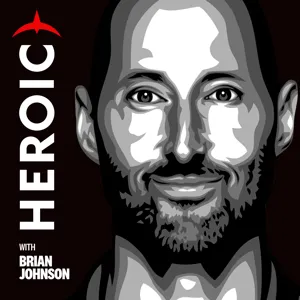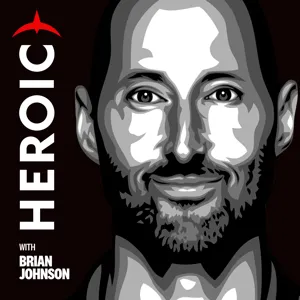Odcinek o wdziÄcznoÅci

Explore "seligman" with insightful episodes like "Odcinek o wdziÄcznoÅci", "Folge 202 Optimismus?!?", "我的社會心理學習筆記|EP34|正向心理學–是理論還是實務?", "Schueller, S. M., & Seligman, M. E. P. (2010). Pursuit of pleasure, engagement, and meaning: Relationships to subjective and objective" and "Every Day Counts #066: Stärkenorientierte Organisationsentwicklung bei BMW - mit David Liebnau" from podcasts like ""czy My się znamy?", "Psychologen beim Frühstück", "世新廣播電臺/我的社會心理學習筆記", "Bastards_VoN'aurez PaMa Chair_Z_Est Amer" and "Every Day Counts - der Leada-Podcast"" and more!







We venture back to Arizona for more fun along Route 66 including visiting the historic town of Seligman, Williams and Oatman and pay a visit to the incomparable Grand Canyon. But we are also quite surprised by Bearizona and have some other fun side trips on our journey to share.
Plus Tony reviews Rad Power Bikes Rad Mini 2 step-thru bike - is this a great gadget for RVers?
The StressLess Camping podcast is a weekly show with information, tips and tricks to help every RVer and camper enjoy some StressLess Camping.

Optimize: https://optimize.me/ (← Get Free Stuff + Free 2-Week Trial!) Optimize Coach: https://optimize.me/coach (← Join 2,000+ Optimizers from 70+ Countries!)
Learned Optimism by Martin Seligman. Optimism, optimism, optimism. If we want to live an extraordinary life, we've gotta develop our ability to shape our minds. In this episode, we're going to take a quick look at Martin Seligman's great book "Learned Optimism" and some science on how to get our optimism on! Hope you enjoy!

Optimize: https://optimize.me/ (← Get Free Stuff + Free 2-Week Trial!) Optimize Coach: https://optimize.me/coach (← Join 2,000+ Optimizers from 70+ Countries!)
Learned Optimism by Martin Seligman. Optimism, optimism, optimism. If we want to live an extraordinary life, we've gotta develop our ability to shape our minds. In this episode, we're going to take a quick look at Martin Seligman's great book "Learned Optimism" and some science on how to get our optimism on! Hope you enjoy!

Dans cet épisode, je vous amène une nouvelle fois à partir en introspection en allant identifier vos forces de caractère.
Les fondateurs de la psychologie positive, Martin Seligman et Christopher Peterson, ont créé en 2004 une classification de 24 forces de caractère universelles. Ils considèrent que l'on retrouve ces mêmes forces chez tous les êtres humains, même si chacun d'entre nous avons notre propre classement. Ces forces de caractère sont elles-mêmes catégorisées dans 6 grandes familles que l'on appelle des vertus.
Après vous les avoir listées et définies, je vous propose de répondre à un questionnaire le site de l'étude des forces de caractère https://www.viacharacter.org. Celui-ci classera vos forces de la plus représentative chez vous à la moins apparente.
Vous pourrez ainsi vous rendre compte des 5 à 7 premières forces de caractère qui forment votre signature personnelle. Ce sont celles qui définissent au mieux votre personnalité et ce sont aussi celles qui vous permettent de vous sentir dans une certaine énergie positive.
L'idée va donc être de partir à leur rencontre afin de reconnecter avec elles et de chercher à les utiliser un maximum au quotidien. En effet, c'est ce qui vous aidera à avancer dans tous vos projets, de même que c'est ce qui vous fera vous sentir puissantes et heureuses. Parce que vous avez de supers pouvoirs ! 💪
Je termine l'épisode en vous expliquant qu'on a généralement tendance à vouloir corriger nos failles, alors qu'il serait préférable de se centrer sur nos forces de caractère.
Enfin, je vous donne quelques exercices pour vous aider à chercher à les utiliser, ce qui vous amènera dans une belle énergie, un profond bien-être dans le seul but de vous épanouir dans votre votre vie.
Bonne écoute 🎧
Tous mes articles disponibles sur mon blog : https://www.reveillezlafemmeforte.fr
Pour me suivre sur les réseaux sociaux :
Instagram : https://www.instagram.com/reveillezlafemmeforte
Facebook : https://www.facebook.com/VirginiePastry
Twitter : https://twitter.com/PastryVirginie
Pinterest : https://www.pinterest.fr/virginiepastry

In today's episode, I talk about wellbeing and what we can do ourselves to support ourselves. I ask why we don't always do the things that we know are good for us? I share what I think is missing and focus on relationship with self.
Links and things I mention -
Take a look at my bookshop for more recommended reading - https://uk.bookshop.org/shop/sarahfoxcoaching
Sign up to Sarah's newsletter: https://sarah-fox-coaching.mykajabi.com/newsletter
Join Do Good and Do Well Facebook community: https://www.facebook.com/groups/do.good.do.well
Sarah on Instagram - https://www.instagram.com/sarahfoxcoach/
Sarah on Twitter https://twitter.com/SarahFoxCoach
Edited by Ryan Nile for Pure Creation Media
https://www.instagram.com/purecreationmedia/

What does it mean to fail? How you view failure may determine not just how you feel, but what you do in the future. In this week's podcast, LouAnn explores the BS surrounding failure and offers some ideas for healthy thinking about an event that happens to all of us.


Welcome to episode nine. Today, I’m going to focus on a fundamental aspect of wellbeing: Gratitude.
Last week, it was my youngest daughter’s 20th Birthday. I know what you’re thinking… I couldn’t possibly be old enough… Thank you, you’re too kind! 😉 But seriously, this Birthday was particularly important, because we are, as a family, so, so lucky!
When I was pregnant with Hannah, my husband and I were told at the 20-week scan that she had a heart condition so rare, so complex and so life threatening that there was nobody alive over the age of 20 with her condition in the entire world. We were told she would have a miserable life, spent mostly in and out of hospital, and were advised to consider a termination. Instead, Hannah received life-saving cutting-edge surgery that hadn’t even been dreamt of 40 years ago, when those rare surviving 20-year-olds of 1999 were born.

Hannah in intensive care after her first open heart surgery in September 2000.
None of us can know what the future holds, but right now, today, I am hugely grateful that my daughter is 20 years old. She is happy, she is as healthy as she can be, and she is pursuing her dream of becoming a doctor, currently in her second year of studying medicine.
Both my daughters were born with complex, life-threatening heart conditions - different heart conditions, just to keep us on our toes! Between them, they’ve had three open heart surgeries and two cardiac arrests. Not a day goes by that I don’t feel an immense sense of gratitude for their everyday lives. On their birthdays, in particular, or on anniversaries of traumatic days in our family’s life, I feel this more poignantly than ever, but it’s always there, as a reminder of what truly matters in life and how lucky we are as a family.
I’ve had strange looks from time to time when I’ve told people that I’m grateful for my daughters’ heart conditions, but how could I not be? Their heart conditions have given them a unique perspective on life and led to them making much safer choices than many of their contemporaries when they were in their teens. They have an appreciation for everyday life that many of us would be lucky to have by the time we are middle aged or older. They have a sense of perspective that many of us needed decades longer to develop. In many ways, of course, they are typical 20-somethings, insofar as there is a ‘typical’ anything. They are both extraordinary and ordinary in every way that matters, and the fact that I can sit here talking about it despite every obstacle that has come our way over the years is worth celebrating, in my opinion.
I find gratitude fascinating - and I am not alone, given how much it has been researched - as it is both an emotion and a character strength. As an emotion, it can be very positive, but of course, there are times when gratitude can have negative or worrying connotations, if it carries with it a sense of indebtedness or a fear of loss, for example, but when practised intentionally it can be a powerful positive psychology intervention. As a character strength, gratitude is a bit like a muscle we can flex and strengthen, so the more we practise it, the better we get at it.
Martin Seligman, often referred to as ‘the Founding Father of Positive Psychology’, has carried out extensive research into gratitude. He found that if you write down ‘three good things’ every evening before going to bed for a week, you can be happier and/or less depressed for six months. I don’t know about you, but that sounds pretty amazing, so why not give it a try? I did a case study on this in a school I worked with - link here - and found that even in young children, the positive effects were almost instant and lasted beyond the intervention itself. Their teacher told me that writing a gratitude diary helped his students’ behaviour, class cohesion and co-operation, and lifted individuals who needed a boost.
I will speak about gratitude in more detail in future episodes, as there are plenty more activities I’d like to share with you, but for today, our time is just about up. So I invite you to write down three good things for a week, and to do this activity with your students, too. Let me know what impact it has! And as always, until we speak again, For Flourishing’s Sake, have a great week!
Everyday Hero - 60 second version (Corporate, motivational, you tube, podcast) Music by Pond5


On her 30th birthday, something went horribly wrong. With a 4-month-old little girl at home, Alyson Seligman was suddenly paralyzed and hospitalized for a month with a rare neurological disorder. Months later, she lost her job and was forced to find a new path. That path has led Seligman to start her own PR company and create one of the most successful blogging/social media influencer businesses in Palm Beach County. She is The Modern Savvy. In this episode of People of Palm Beach, Alyson explains why she's so successful as an influencer, how she still copes with her debilitating health problems and her next big venture that terrifies her. Listen to why Alyson is one of the most resilient people of Palm Beach...
Link to Sound File for Sight Impaired: Click Here
Host: Suzanne Boyd
Producer: Jaime ("Jemmy") Legagneur, Chief Enthusiasm Officer
Title Sponsor: Interested in becoming POPB's next Title Sponsor? Contact FPN today!
Featured Photo Credit: Suzanne Boyd
Guest: Alyson Seligman of The Modern Savvy, The SBS Agency
Follow People of Palm Beach on Facebook, Twitter, and Instagram.
Additional Support Provided by: Little Smiles of Florida, Listeners Like You!!
Partner with FPN: Become the Voice of YOUR Town!! From sponsoring episode segments through creating and growing your own branded show, we have the solution to promote you while we promote Florida!
We are currently boarding shows to build out our network. And, you don’t want to miss ANY of the new hosts and podcasts were have joining us. Search for and subscribe to “Florida Podcast Network” on iTunes and all your favorite podcast players to get more of this and ALL our shows.
Have a suggestion for the Network? Join us in the FPN Insiders group on Facebook and let us know!
FPN: Check out the other shows on the Florida Podcast Network

Is the glass half full or half empty? Why does optimism matter? Does it really make that big of a difference? I’ll end the episode with an activity that can help you learn optimism!
A Happier Year is now available — an illustrated calendar with 366 science-based actions. Use the code "happycastlistener" for 10% off at checkout on ahappieryear.com
[01:24] What is optimism and why is it good?
[02:20] Myths about optimism
[03:40] There’s a study that shows overly optimistic people run the risk of not seeing dangers
[5:50] Thoughts on the glass being half full
[07:16] Pygmalion effect
[09:30] ABCDE, steps for learning optimism


Martin Seligman is one of the founding fathers of the Positive Psychology movement and this is the third Note we’ve done on one of his books. (Check out the Notes on his other classics: Learned Optimism and Authentic Happiness for more science of happiness goodness.) In this Note, we’ll explore his shift from Authentic Happiness Theory to Well-Being Theory as we wrap our brains around PERMA, his model of well-being that consists of Positive emotions + Engagement + Relationships + Meaning + Achievement. Good times.

Martin Seligman is one of the founding fathers of the Positive Psychology movement and this is the third Note we’ve done on one of his books. (Check out the Notes on his other classics: Learned Optimism and Authentic Happiness for more science of happiness goodness.) In this Note, we’ll explore his shift from Authentic Happiness Theory to Well-Being Theory as we wrap our brains around PERMA, his model of well-being that consists of Positive emotions + Engagement + Relationships + Meaning + Achievement. Good times.
Stay up to date
For any inquiries, please email us at hello@podcastworld.io